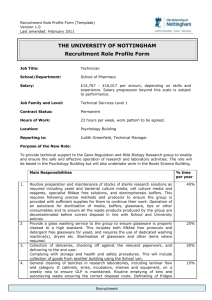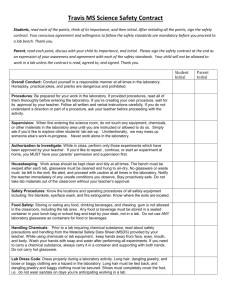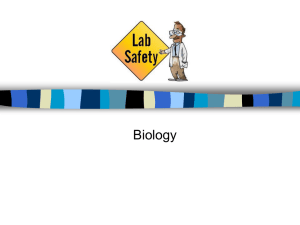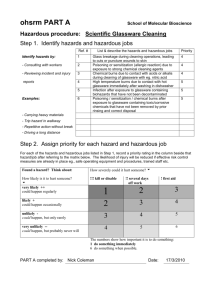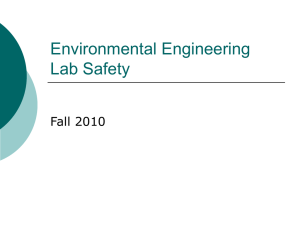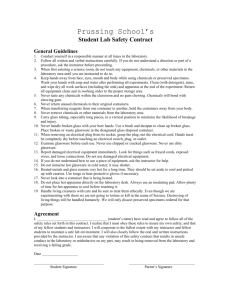Environmental Health & Safety Office Laboratory Glassware Disposal Policy
advertisement
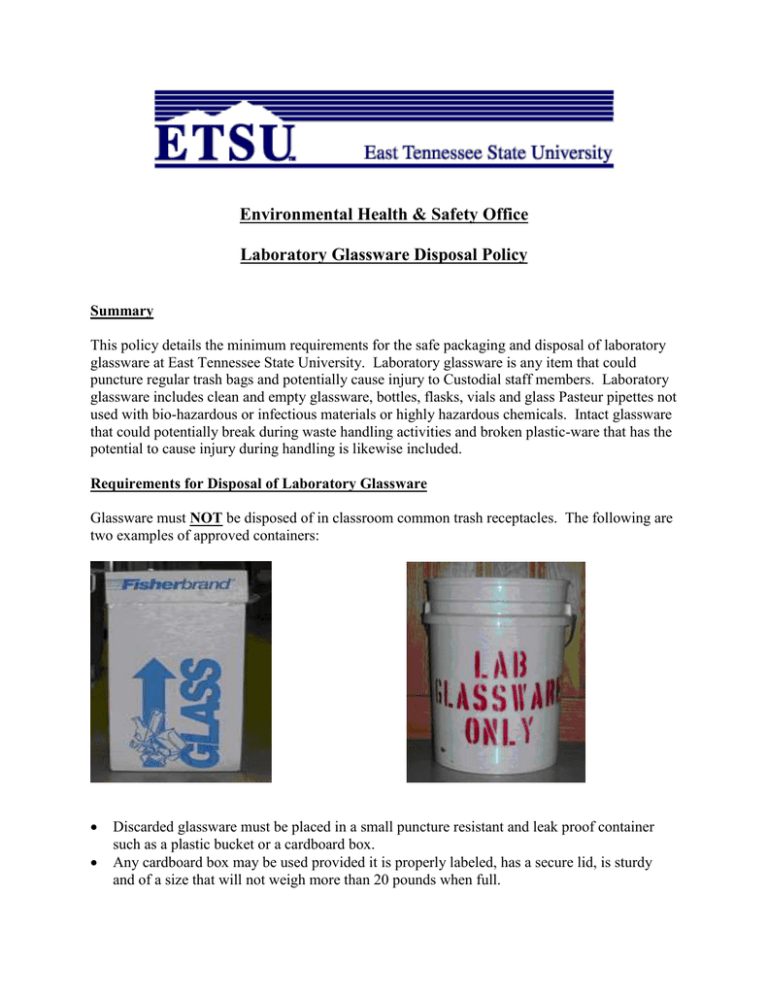
Environmental Health & Safety Office Laboratory Glassware Disposal Policy Summary This policy details the minimum requirements for the safe packaging and disposal of laboratory glassware at East Tennessee State University. Laboratory glassware is any item that could puncture regular trash bags and potentially cause injury to Custodial staff members. Laboratory glassware includes clean and empty glassware, bottles, flasks, vials and glass Pasteur pipettes not used with bio-hazardous or infectious materials or highly hazardous chemicals. Intact glassware that could potentially break during waste handling activities and broken plastic-ware that has the potential to cause injury during handling is likewise included. Requirements for Disposal of Laboratory Glassware Glassware must NOT be disposed of in classroom common trash receptacles. The following are two examples of approved containers: Discarded glassware must be placed in a small puncture resistant and leak proof container such as a plastic bucket or a cardboard box. Any cardboard box may be used provided it is properly labeled, has a secure lid, is sturdy and of a size that will not weigh more than 20 pounds when full. Requirements for Disposal of Laboratory Glassware (Continued) Label the outside of the container “Broken Glass Only.” Ensure that the label is in a location that is readily visible to laboratory and custodial staff. Laboratory glassware cannot be contaminated with hazardous, radioactive, pathological, chemical or biological material. Laboratory glassware must be appropriately decontaminated prior to disposal. Triple rinse and deface labels before placing glassware into disposal container. The glassware must be substantially free of liquids. Once full, place the container next to the waste basket near door for custodial staff to pickup. Never use laboratory glassware containers for the disposal of the following: Sharps/needles Syringes Razor blades Scalpels Biohazard materials Liquid wastes Chemically contaminated laboratory glassware Empty containers that contained an acutely hazardous waste Broken Laboratory Glassware Cleanup Broken glassware should immediately be cleaned up. Each laboratory should be equipped with a small brush or broom and dust pan to clean up after small accidents. If the glassware contains hazardous, biological or radiological contaminants, please contact the ETSU Environmental Health & Safety Office at 439-6028 (extension 96028) for assistance. Links of Interest Fisher Scientific Glass Disposal Boxes Scienceware Glass Disposal Boxes
